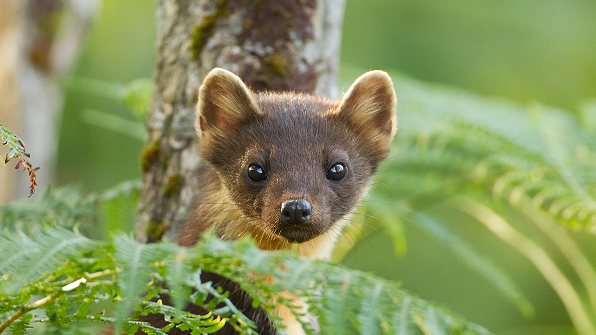Hungarian hogs used to save butterfly habitat
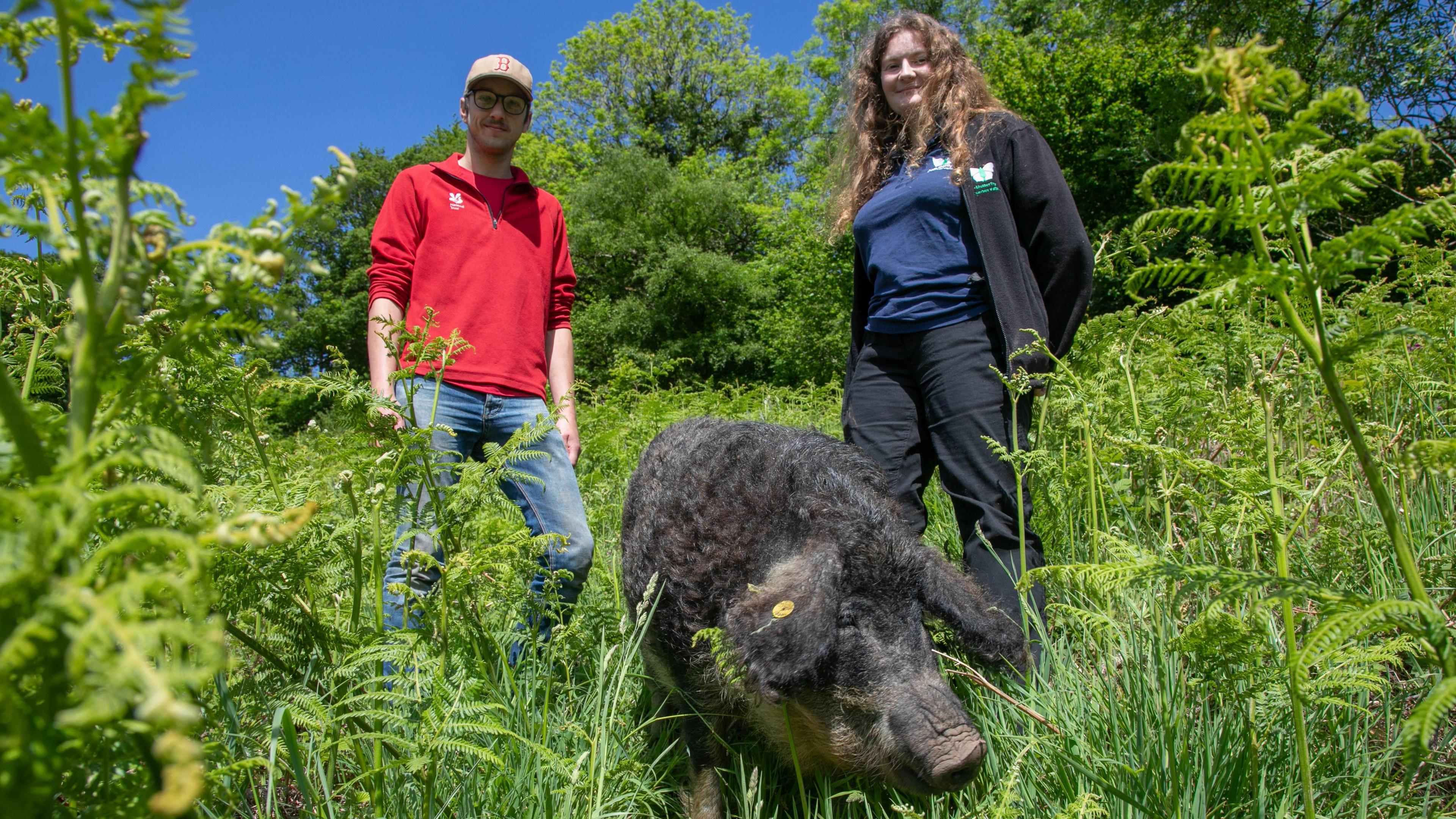
The curly-haired Mangalitsa pigs are being deployed as “living lawnmowers”
- Published
Conservationists in Devon are using hairy Hungarian hogs to create the perfect habitat for the UK’s most endangered butterfly.
The curly-haired Mangalitsa pigs are being deployed as “living lawnmowers” alongside English Longhorn cattle at a National Trust site on Exmoor, Devon.
Wildlife charity, Butterfly Conservation, said the animals would help create ideal breeding conditions for the High Brown Fritillary butterfly.
Ellie Wyatt, from the charity, said the project was "incredibly exciting".
The butterfly, one of the biggest in the UK with a wingspan of up to 67mm (2.6in), was once widespread across England and Wales.
Since 1978, the orange and black insect has declined by 65% and is only found in three locations in England, the charity said.
One of sites where it still exists is the National Trust’s Heddon Valley, near Barnstaple, where the cattle and pigs are able to chomp down aggressive shrubs that can quickly take over its habitat.
This will allow Butterfly Conservation to create space for the butterfly's sole food plant, the common dog-violet, to grow.
Ms Wyatt said: "The Longhorn cattle are gorgeous and look majestic in the landscape and I'm looking forward to seeing the trails they and the pigs make through the bracken and seeing if violets spring up in these paths."
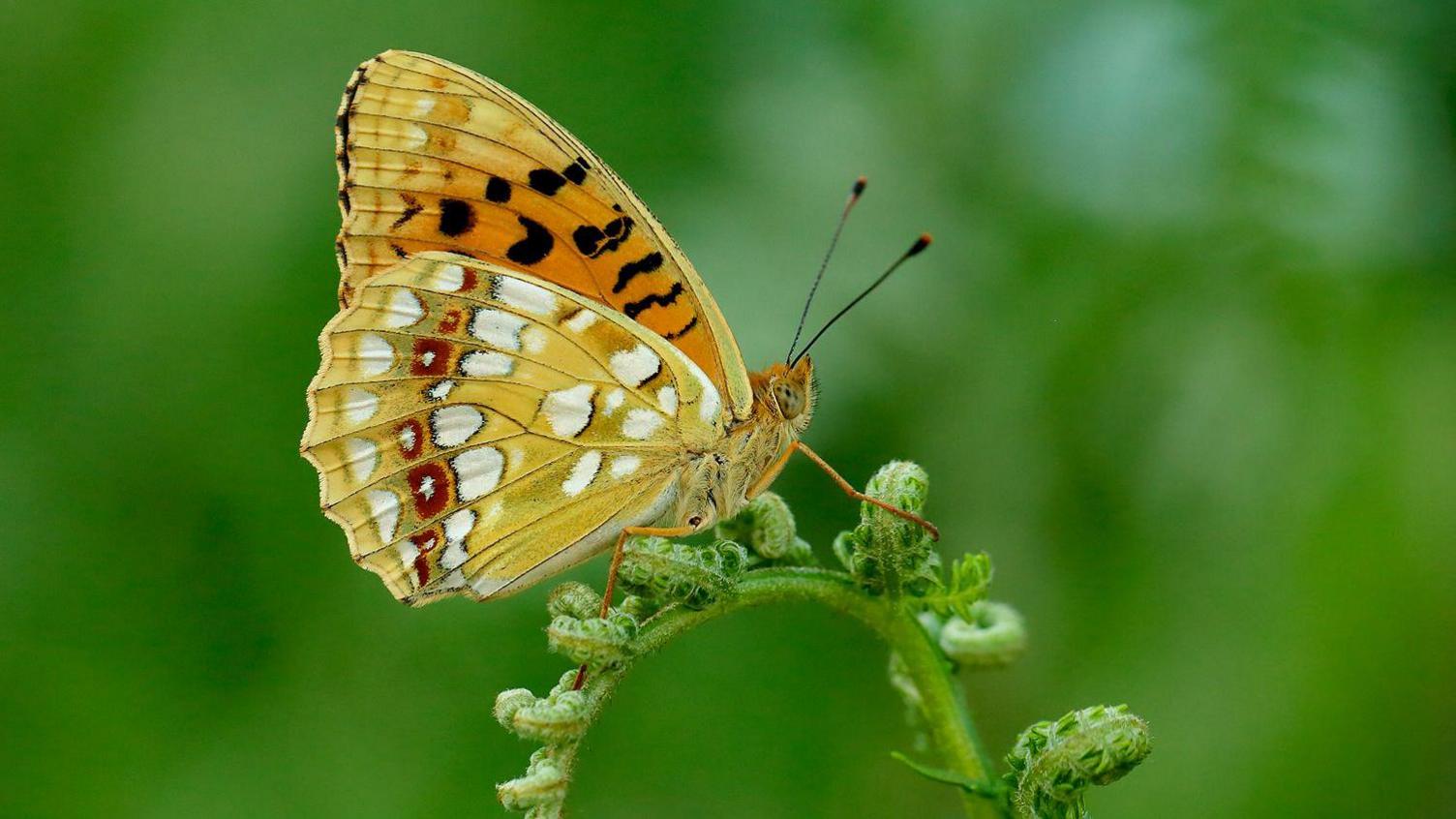
The orange and black insect is only found in three locations in England
Butterfly Conservation secured a £228,000 Species Recovery Grant from Natural England last year, to which it and the National Trust added £12,000 each.
The charity is also putting up fencing and collecting common dog-violet seeds for off-site germination to help boost the success of the project.
National Trust ranger for West Exmoor, Mathieu Burtschell, said: “Collaborating with Butterfly Conservation has allowed us to do some exciting and much-needed work in our woodlands that will benefit the High Brown Fritillary as well as many other species.”
Butterfly Conservation said its work at Heddon Valley built on the success it had already had conserving the High Brown Fritillary at nearby Dartmoor, where it recorded a 20-year high in the population in 2022 after years of work.
Follow BBC Devon on X (formerly Twitter), external, Facebook, external and Instagram, external. Send your story ideas to spotlight@bbc.co.uk, external.
Related topics
- Published1 June 2024
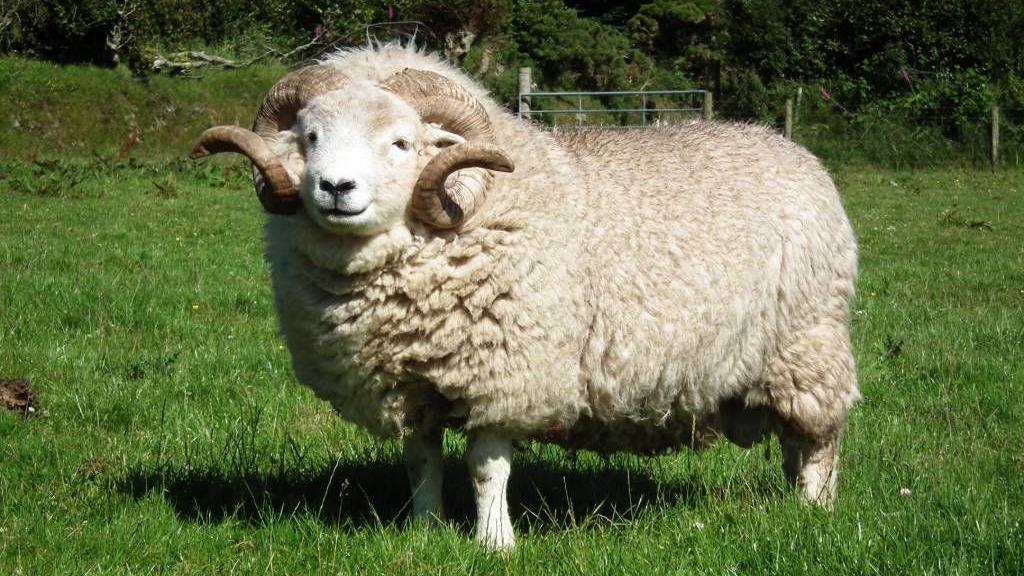
- Published3 February 2024
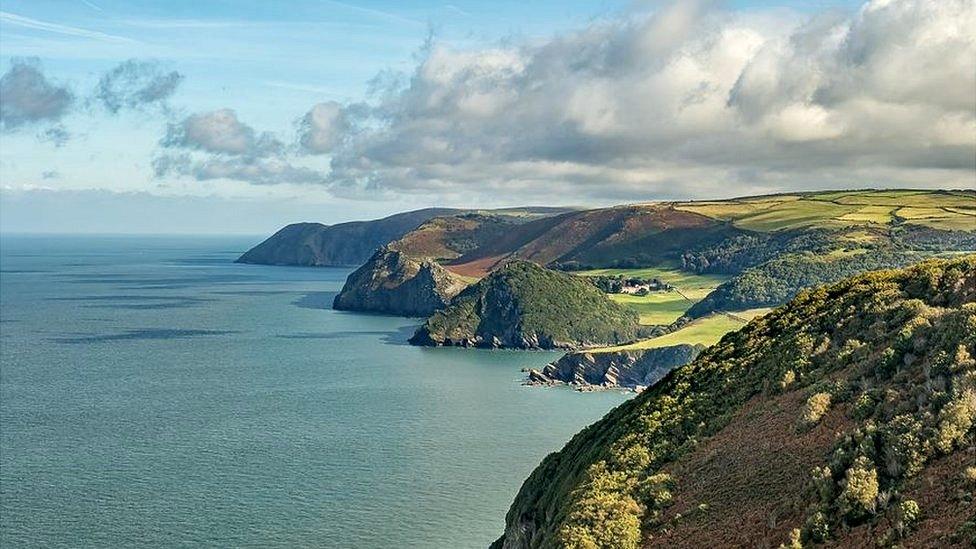
- Published27 May 2024
